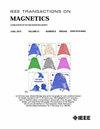用于安全和高性能PiM架构的基于自旋电子学的功率攻击免疫AES硬件加速器
IF 2.1
3区 工程技术
Q3 ENGINEERING, ELECTRICAL & ELECTRONIC
引用次数: 0
摘要
由于CMOS技术的扩展导致泄漏功率的增加,对数据安全的担忧日益增长。这就需要将自旋电子器件(如磁隧道结(MTJs))与CMOS集成在一起,以减轻泄漏功率并保持数据完整性。本文提出了一种新的MTJ/CMOS混合架构,该架构在内存进程(PiM)框架内实现了高级加密标准(AES)算法,以增强数据安全性。关键的创新是该架构对侧信道攻击的弹性,包括差分功率分析(DPA)和相关功率分析(CPA)。采用成熟的40纳米CMOS技术的综合布局后仿真表明,即使在工艺变化的情况下,每个AES组件的功耗模式仍然保持不变。此外,系统级仿真突出表明,所提出的AES-128体系结构可以有效地抵抗信息泄漏和功率攻击,即使暴露在用于密钥提取的大量功率跟踪中也是如此。对比结果表明,我们提出的抗功率攻击AES-128硬件设计优于现有的专用集成电路(ASIC)和现场可编程门阵列(FPGA)实现,静态功率提高98%,最大频率提高72%和91%。该体系结构对实现其他AES版本(AES-192和AES-256)和基于替换的加密算法的适应性进一步扩展了其通用性。本文章由计算机程序翻译,如有差异,请以英文原文为准。
Power Attack-Immune Spintronic-Based AES Hardware Accelerator for Secure and High-Performance PiM Architectures
Concerns about data security have grown due to the increasing leakage power attributed to the scaling of CMOS technology. This necessitates the integration of spintronic devices, such as magnetic tunnel junctions (MTJs), with CMOS to mitigate leakage power and maintain data integrity. This article proposes a novel hybrid MTJ/CMOS architecture that implements the advanced encryption standard (AES) algorithm within a process-in-memory (PiM) framework to enhance data security. The key innovation is the architecture’s resilience to side-channel attacks, including differential power analysis (DPA) and correlation power analysis (CPA). Comprehensive post-layout simulations using the well-established 40-nm CMOS technology demonstrate that the power consumption patterns of each AES component remain constant, even under process variations. Furthermore, system-level simulations highlight that the proposed AES-128 architecture effectively resists information leakage and power attacks, even when exposed to numerous power traces used for key extraction. Comparative results indicate that our proposed power attack-resilient AES-128 hardware design outperforms existing application-specific integrated circuit (ASIC) and field-programmable gate array (FPGA) implementations, enhancing static power by 98% and boosting maximum frequency by 72% and 91%, respectively. The architecture’s adaptability for implementing other AES versions (AES-192 and AES-256) and substitution-based encryption algorithms further expands its versatility.
求助全文
通过发布文献求助,成功后即可免费获取论文全文。
去求助
来源期刊

IEEE Transactions on Magnetics
工程技术-工程:电子与电气
CiteScore
4.00
自引率
14.30%
发文量
565
审稿时长
4.1 months
期刊介绍:
Science and technology related to the basic physics and engineering of magnetism, magnetic materials, applied magnetics, magnetic devices, and magnetic data storage. The IEEE Transactions on Magnetics publishes scholarly articles of archival value as well as tutorial expositions and critical reviews of classical subjects and topics of current interest.
 求助内容:
求助内容: 应助结果提醒方式:
应助结果提醒方式:


